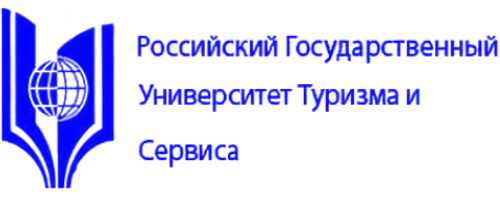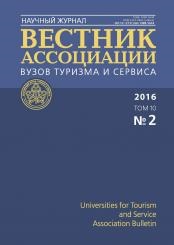Moscow, Russian Federation
Moscow, Russian Federation
The subject of this article research is the possibility of using video materials published on the Internet when teaching Russian. The authors pay attention to the fact that in the methodological literature there is a lot of experience with video when learning a foreign language, however, the use of these teaching materials in Russian language lessons is not systematic. The main objective of the teacher in working with video technologies is formulated in the article and it is a control of video perception. It is noted the great role of audiovisual training tools, not only for the formation of auditory competence, but also for the formation of cognitive and communicative ones. The authors of the article give practical recommendations on the integration of video lectures in the educational process at different stages of studying the educational material, including from the age features of schoolchildren on the example of two thematic projects "Videoblog on the subjects of the natural science cycle. Russian Language "and" Language is the Soul of the People ". In particular, authors note that it is advisable to offer video content for work to students who have developed basic skills of independent work. In the opinion of the authors, the use of video lessons at the stage of repetition and generalization of the studied material is especially effective. The article also demonstrates the possibility of using video lectures not only for working with school students in Russian language lessons, elective courses for choice and for holding class hours, but also for students of colleges and universities. The authors offer reproductive, analytical, searching and creative tasks for working with video content, which allow you to diversify the forms of work with students.
video material, Russian language, culture of speech, Unified State Examination, Basic State Examination, complex sentence, compound sentence
1. Aytpaeva A.S. K voprosu ob ispol'zovanii obrazovatel'nyh resursov interneta na zanyatiyah po russkomu yazyku // Russkiy yazyk kak nerodnoy: novoe v teorii i metodike: Mat. IV mezhd. nauch.-metod. konf. Vyp. 4. Cheboksary: OOO «Centr nauchnogo sotrudnichestva «Interaktiv plyus», 2015. S. 345.
2. Artamonova G.V. Autentichnye videomaterialy kak sredstvo povysheniya motivacii studentov k samostoyatel'noy rabote // Azimut nauchnyh issledovaniy: pedagogika i psihologiya. T. 5. 2016. № 4. S. 51-54.
3. Andreev A.A. Vvedenie v internet-obrazovanie. M.: Logos, 2003. 76 s.
4. Batraeva O.M. Ispol'zovanie videomaterialov na zanyatiyah po yazyku special'nosti inostrannyh uchaschihsya, izuchayuschih russkiy yazyk v tehnicheskom vuze // Apriori. Ceriya: Gumanitarnye nauki. 2015. № 3. S. 6. www.apriori-journal.ru (data obrascheniya: 12.06.2017).
5. Baranova N.A., Dubinina A.S. Preimuschestva ispol'zovaniya internet-resursov pri obuchenii inostrannym yazykam // Koncept. Nauchno-metodicheskiy elektronnyy zhurnal. 2015. № 7. S. 161-165.
6. Valetko S.A. Ispol'zovanie video na uroke inostrannogo yazyka // Prepodavanie v vysshey shkole. 2013. № 3. S. 145-147.
7. Gubina G.G. Ispol'zovanie elektronnyh tehnologiy v processe obucheniya inostrannomu yazyku v vuze: sbornik nauchnyh i uchebno-metodicheskih statey. M.: Direkt-Media, 2013. 122 s.
8. Kruk B.I., Zhuravleva O.B. Ispol'zovanie video v distancionnom obuchenii: dlya prepodavateley i uchiteley. Izd. 2-e. Novosibirsk: Izdatel'skie reshenie, 2017. 137 s.
9. Merdok Mett'yu, Myuller Treyon. Vzryv obucheniya: devyat' pravil effektivnogo virtual'nogo klassa: per. s angl. M.: Al'pina Pablisher, 2012. 188 s.
10. Solovova E.N. Metodika obucheniya inostrannym yazykam: bazovyy kurs. M.: Prosveschenie, 2008. 238 s.
11. Scheglova L.V., Pluzhnikova N.N., Saenko N.R. Interaktivnye tehnologii v prepodavanii gumanitarnyh disciplin: v poiskah sovremennoy modeli obucheniya // Vestnik Associacii vuzov turizma i servisa. T. 11. 2017. № 2. S. 73-78.
12. Scheglova L.V., Saenko N.R. Metodicheskie resursy hudozhestvennogo kinematografa v kontekste prepodavaniya gumanitarnyh disciplin v sovremennoy vysshey shkole // Vestnik Associacii vuzov turizma i servisa. T. 10. 2016. № 4. S. 39-49.
13. Dudeney G., Hocklyn N. How to teach English with technology. London: Pearson Longman. 2008.
14. Sherman J. Using Authentic Video in the Language Classroom. Cambridge: Cambridge University Press, 2006. 277 p.





